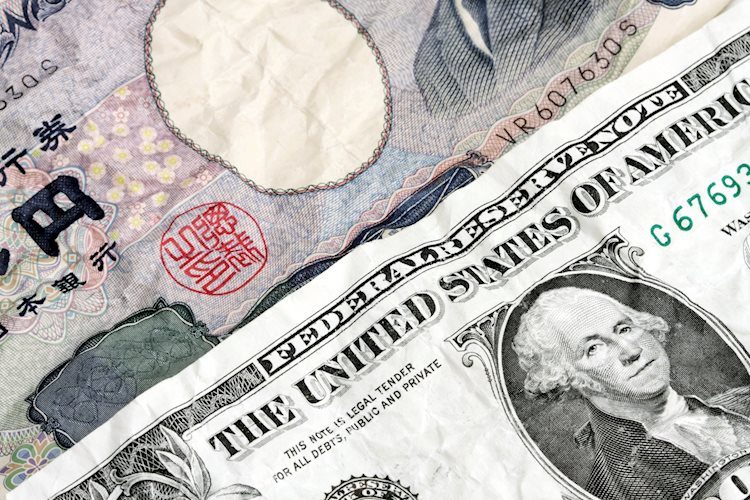- USD/JPY gains to near 158.00 as the safe-haven demand of the Japanese Yen has eased.
- Investors await the US inflation data for fresh guidance on interest rates.
- Fed dovish bets have lately trimmed on upbeat US labor market data for December.
The USD/JPY pair moves sharply higher to near 158.00 in Tuesday’s European session. The asset gains firmly as the safe-haven appeal of the Japanese Yen (JPY) has faltered amid recovery in demand for risk-sensitive assets.
The Yen performed strongly in last three trading days against the US Dollar (USD) despite the latter rallied to a fresh more-than-two-year high. However, the Yen appears to be losing heat, with investors focusing on the United States (US) Consumer Price Index (CPI) data for December, which will be published on Wednesday.
Analysts at Bank of America (BofA) expect, “If US CPI surprises to the upside this week, upward pressure for USDJPY spot is likely to resume, due to the pair’s high sensitivity to CPI surprises.”
According to market expectations, annual headline inflation is estimated to have grown by 2.8%, faster than 2.7% in November. In the same period, the core CPI – which excludes volatile food and energy prices – rose steadily by 3.3%.
Signs of price pressures remaining stubborn would further weigh on Federal Reserve (Fed) dovish bets. Lately, Fed dovish prospects trimmed significantly after the release of the surprisingly stronger US Nonfarm Payrolls (NFP) data for December.
On the domestic front, the Japanese Yen will be influenced by the market speculation for the Bank of Japan’s (BoJ) likely interest rate action in the policy meeting on January 24. BoJ Deputy Governor Ryozo Himino said on Tuesday that the board will discuss whether to “raise interest rates next week and reach a decision”, based on the economic and price projections laid out in our quarterly outlook report.”
Japanese Yen FAQs
The Japanese Yen (JPY) is one of the world’s most traded currencies. Its value is broadly determined by the performance of the Japanese economy, but more specifically by the Bank of Japan’s policy, the differential between Japanese and US bond yields, or risk sentiment among traders, among other factors.
One of the Bank of Japan’s mandates is currency control, so its moves are key for the Yen. The BoJ has directly intervened in currency markets sometimes, generally to lower the value of the Yen, although it refrains from doing it often due to political concerns of its main trading partners. The BoJ ultra-loose monetary policy between 2013 and 2024 caused the Yen to depreciate against its main currency peers due to an increasing policy divergence between the Bank of Japan and other main central banks. More recently, the gradually unwinding of this ultra-loose policy has given some support to the Yen.
Over the last decade, the BoJ’s stance of sticking to ultra-loose monetary policy has led to a widening policy divergence with other central banks, particularly with the US Federal Reserve. This supported a widening of the differential between the 10-year US and Japanese bonds, which favored the US Dollar against the Japanese Yen. The BoJ decision in 2024 to gradually abandon the ultra-loose policy, coupled with interest-rate cuts in other major central banks, is narrowing this differential.
The Japanese Yen is often seen as a safe-haven investment. This means that in times of market stress, investors are more likely to put their money in the Japanese currency due to its supposed reliability and stability. Turbulent times are likely to strengthen the Yen’s value against other currencies seen as more risky to invest in.
Read the full article here

